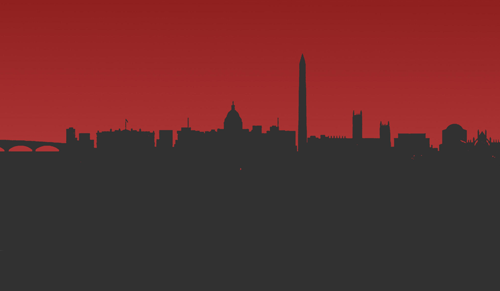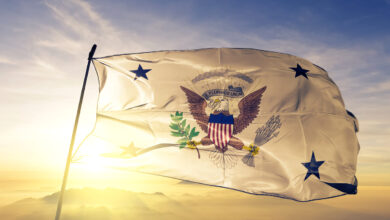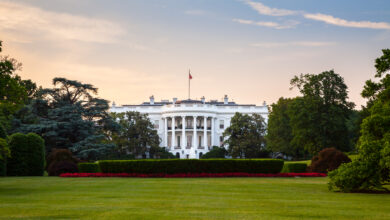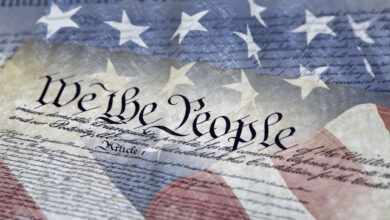
January has become synonymous with Davos. And Davos has become synonymous with elite status and power. Given the number of world leaders, CEOs, billionaires, philanthropists, and celebrities that descend upon the otherwise sleepy Swiss village amid the Alps, that is not surprising (Fun fact: Davos’ population is 11,000; during the World Economic Forum’s summit, it goes up to 30,000). What do these “movers and shakers” do there? They would tell you that they’re trying — as the World Economic Forum, the organization that has hosted the event since 1971 — to “improve the world.” A whole lotta others would roll their eyes. The Davos set, they would say, is responsible for many of today’s challenges, particularly inequality and injustice. The theme for this year’s gathering is “Globalization 4.0.” Oh, and the event’s gender breakdown: 22 percent women, apparently a “high” for the event. 🙄 (Note to WEF: 22% isn’t gender equality.)
- Globalization 4.0 for whom? asks Oxfam’s Winnie Byanyima. She questions how useful the elite gathering in Davos really is. (Project Syndicate)
- Katie Hope has 10 things you didn’t know about Davos. (BBC)
- Christiana Figueres and Greta Thunberg want to know why climate change isn’t the number one priority at the confab. (Washington Post) – (Errr……maybe all those private jets have something to do with it….)
- The World Economic Forum’s Saadia Zahidi explains that Globalization 4.0 is the coming together of various trends: geopolitical shifts, inequality, climate change, and technology. These four factors are creating a new period of globalization. (Marketplace)
- The percentage of women at Davos is greater than ever before. (Quartz)
- The Davos elite should change the rules of the global economy to tackle climate change and inequality, argue Jennifer Morgan and Sharan Burrow. (Al Jazeera)
Breaking: Elmira is the new host of the Project Syndicate PS Editors’ Podcast. (Sign up on iTunes, Stitcher, and Soundcloud). In her inaugural episode, she’ll talk about Davos, inequality, Bill Gates, and more with Anand Giridharadas. It comes out on Tuesday, January 29.
Venezuela: Who’s the boss?
A street corner isn’t the first place to look for a country’s leader. But that’s where Juan Guaidó found himself as he assumed Venezuela’s interim presidency. Say wha? Elections held last May left many questions, including the legitimacy of the vote and its self-declared winner, Nicolás Maduro. And that has left a political vacuum in the country — a vacuum that Guaidó has stepped up to fill as he promised to call for new elections. Venezuela has been suffering an economic crisis for the past several years. Hyperinflation, unemployment, food shortages, power cuts. The United States, along with Argentina, Brazil, Canada, Chile, Colombia, Costa Rica, Paraguay, Peru, Ecuador, Guatemala and the Organization of American States have recognized Guaidó as Venezuela’s leader. That has not made Maduro happy. He’s cut ties with the U.S., giving American diplomats 72 hours to leave, (which Trump said would be ignored). Expect the next few days and weeks to be both violent and hopeful. Venezuelans are looking at the very real possibility of ending a 20-year dictatorship.
- Venezuelan opposition leader Guaidó Declares himself president, with U.S. backing. Daniella Cheslow and Laurel Wamsley report. (NPR)
- Trump’s declaration on Venezuela sets stage for ‘confrontational moment,’ says Nicole Gaouette. (CNN)
- Frida Ghitis writes that American support could backfire and urges the Trump administration to proceed with caution and play a supporting role. (Washington Post)
Zimbabwe: Going dark
Some hoped the tide would turn after Emmerson Mnangagwa succeeded Robert Mugabe as president of Zimbabwe in late 2017, (in a coup, by the way….). Upon taking office, Mnangagwa vowed to focus on jobs and the economy. Zimbabwe, he said, would be “open for business.” For the past year, it has been open to hyperinflation and a valueless currency. Last week, the government announced a hike in fuel prices, which are already among the highest in the world, in a country that has among the poorest people. And you bet those people were pissed. They spilled out onto the streets to protest. The government’s response? Shutdown the Internet (a move straight out of the authoritarian playbook.)
- The government of Zimbabwe initiated a shutdown on social media, amid protests after a hike in fuel prices and discussions on a new currency. Thandekile Moyo narrates her ordeal fleeing persecution at home into exile. (Mail and Guardian)
- WhatsApp, Twitter, Facebook, and YouTube have been blocked in Zimbabwe amid huge anti-government protests and a brutal police crackdown. Tamerra Griffin on the ensuing civil unrest. (Buzzfeed)
- Zimbabwe is burning. It’s time to act, say Michelle Gavin and Alexander Noyes. (Washington Post)
Read the rest of FP Interrupted here. Sign up to receive the newsletter each Friday here.




